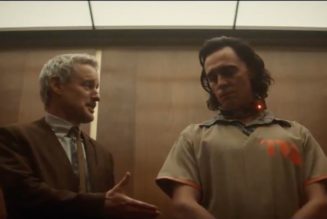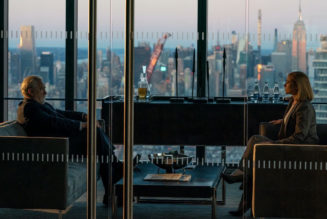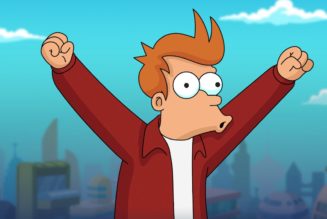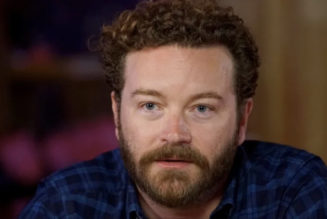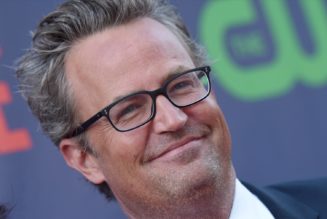By Tre’vell Anderson
Ever since Daveed Diggs shot to international acclaim in 2015 as an original cast member of the hit Broadway musical Hamilton, for which he won both a Grammy and Tony, Hollywood’s been the actor-rapper-everything man’s oyster. Unlike others who might say “yes” to every project that comes their way, however, the Oakland-born polymath is judicious with his choices, keenly attaching himself to works with greater meanings than pure entertainment. Because the professional, like the personal, is political.
“I come from a culture of protest,” he tells MTV News over the phone from his Los Angeles home, observing stay-at-home orders as a result of the COVID-19 pandemic. In high school, he says, he was part of walkout protests every other week. With a Black father and Jewish mother, issues of racial injustice and immigrant rights, for example, have always been important to him, though he admits that, in retrospect, some of his efforts at a younger age might’ve been “shortsighted.” Now, he’s incapable of divorcing politics from his artistic choices.
“I would have a hard time participating in a piece that I think is presenting an idea that I don’t agree with,” he continues. “For example, I don’t play stupid people, and that to me is political. I think this sort of glorification of stupidity — by which I don’t mean lack of education; I mean not having to deal with the consequences of your actions — is something that’s dangerous. I actually think it is something that allows systems of power to take away power from their people. Those are the kinds of decisions I find myself making a lot.”
Enter Snowpiercer, TNT’s new post-apocalyptic action drama which premiered Sunday (May 17), in which Diggs stars opposite Oscar-winner Jennifer Connelly.
 Justina Mintz / TNT
Justina Mintz / TNTDaveed Diggs as Andre Layton and Megan Connelly as Melanie Cavill in Snowpiercer.
Based on both the 2013 film by the same name by Bong Joon-ho (Parasite) and the 1982 French graphic novel Le Transperceneige, Snowpiercer is set in 2021, seven years after human efforts to combat climate change backfired and turned the world into an uninhabitable, frozen tundra. It follows the world’s only survivors who live across 1,001 cars, separated by class, on a perpetually-moving train that circles the globe. The series centers on Connelly’s Melanie Cavill, a first-class passenger who does the train’s daily announcements via a PA system, and Diggs’s Andre Layton, a Columbo-esque former detective from Chicago living in the last car with others who bogarted their way onto the train years prior. They were collectively granted amnesty in exchange for labor, surviving off rationed food and with no access to no social services. Mickey Sumner, Sheila Vand, Lena Hall, and Alison Wright also star in this ensemble effort.
On its face, this role for Diggs is against type. It’s quite literally the opposite of his turn as the hipster brother of Tracee Ellis Ross’s Bow on Black-ish and as a supportive teacher in the Julia Roberts and Owen Wilson-fronted Wonder. Snowpiecer and his character are also diametrically different than Blindspotting, the indie darling he co-wrote and co-starred in with Rafael Casal. Unlike Snowpiercer’s foreboding premise, that film, about a changing friendship set against the backdrop of a rapidly gentrifying Oakland, balanced humor with distress.
“There’s certainly space for levity and comedy in [Snowpiercer], but Layton’s a little less outwardly emotional than anybody else I’ve ever played, which was an interesting challenge for me,” Diggs says. “How it fits in with the pattern of the work I choose is that it still is a role where your assumptions about him are challenged over the course of the season, and his assumptions about everybody else. Those are the things that I look for. It still fits in with this overarching thing I have of not playing anybody who is what they seem on the surface.”
Additionally, as a fan of sci-fi and mystery dramas (he often references the works of authors Octavia Butler, Ursula K. Le Guin, and Agatha Christie), he was excited to delve into this dystopic, futuristic world. An initial concern however, because he had yet to lead a TV show, was making sure that the world it created could easily sustain itself across multiple seasons. Thankfully, when he compared the pilot script to Bong Joon-ho’s original film, and later the graphic novels, he saw how the series aimed to excavate many of the sociopolitical tensions that were mere references in the source material.
 Justina Mintz / TNT
Justina Mintz / TNTAndre Layton (Diggs) gathers with his fellow last-carmates.
For example, in the film, Chris Evans’s Curtis leads his fellow last-carmates on a jam-packed, two-hour-long effort to take over the train. The television show, however, takes its time, allowing audiences to truly see the disproportionate living experiences and class stratifications within each car. And Diggs’s character, who, as the only former detective on the train, is plucked from the last car to investigate a mysterious death that happens in one of the elite cars, is a catalyst. This plot realization reassured Diggs that he, and by extension viewers, would never get bored. (The show has already been picked up for a second season, which was two weeks shy of filming completion when production halted due to the coronavirus pandemic.)
It’s those many possibilities (and contractual obligations, he joked earlier this year) that kept him and other cast members attached to the project throughout its five-year journey — which started in 2015 and included a change in showrunner, reshoots of the pilot as well as a programming shift from (and back to) TNT — to getting made and released. That meant Graeme Manson inherited Diggs and his castmates when he took over as showrunner in 2018, an ensemble with which he was “absolutely thrilled to be able to work.”
“Daveed’s a very kinetic and charismatic actor, and those are crucial qualities for a rebel leader, and for Layton, so I was really excited about that,” Manson said. While some of the other cast members had changes made to their role, Diggs’ remained the same, just “a much different skin and he had to inhabit a different world.”
And because Diggs is a lyricist (he fronts the experimental hip-hop group Clipping. with producers William Hutson and Jonathan Snipes) and a screenwriter in his own right (he’s adapting Blindspotting for Starz), he’s a quick learner and “very adaptable,” a quality Manson appreciates along with Diggs’s “great demeanor and ability to lead quietly.”
 Emily Assiran/Getty Images
Emily Assiran/Getty ImagesDaveed Diggs poses with co-star Lena Hall and director Graeme Manson.
There is, however, nothing quiet about the message Snowpiercer carries. “A world that has a lot of tie-in to our own,” as Diggs describes it, the show is an incisive allegorical interrogation of class, social justice, and survival with an overarching warning about the climate crisis — a missive that cuts deeply during our moment of quarantining. Like (to an extent) the inability of Snowpiercer characters to get off the train and its social strata impacting the resources available to varying cars, the disproportionate impact COVID-19 has had, for example, on lower-income and Black, Latinx and Indigenous communities illustrates many of our own inequities. Luckily, art, and sci-fi in particular, aims to “provide enough cognitive distance for us to examine some of our own choices,” Diggs says.
“We are all living within a class structure that doesn’t serve everybody that operates within it,” he continues. “By making that structure linear, it allows us to see the positions of all these characters who are in many different classes and situations on this train. It asks you to empathize with the overarching conceit, which is that we ended the world ourselves, and allows us a little bit of fantasy to take on some of that responsibility.”
Knowing this, one question persists: What happens next?
It’s the collective we who decide.

